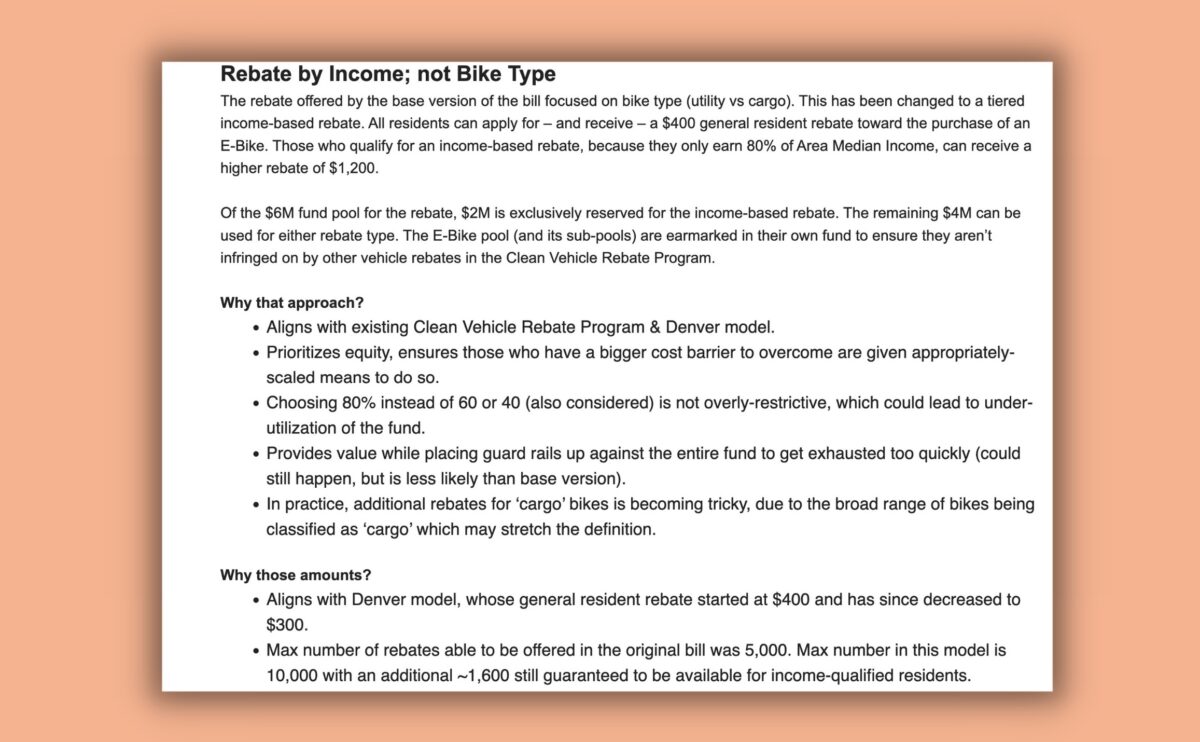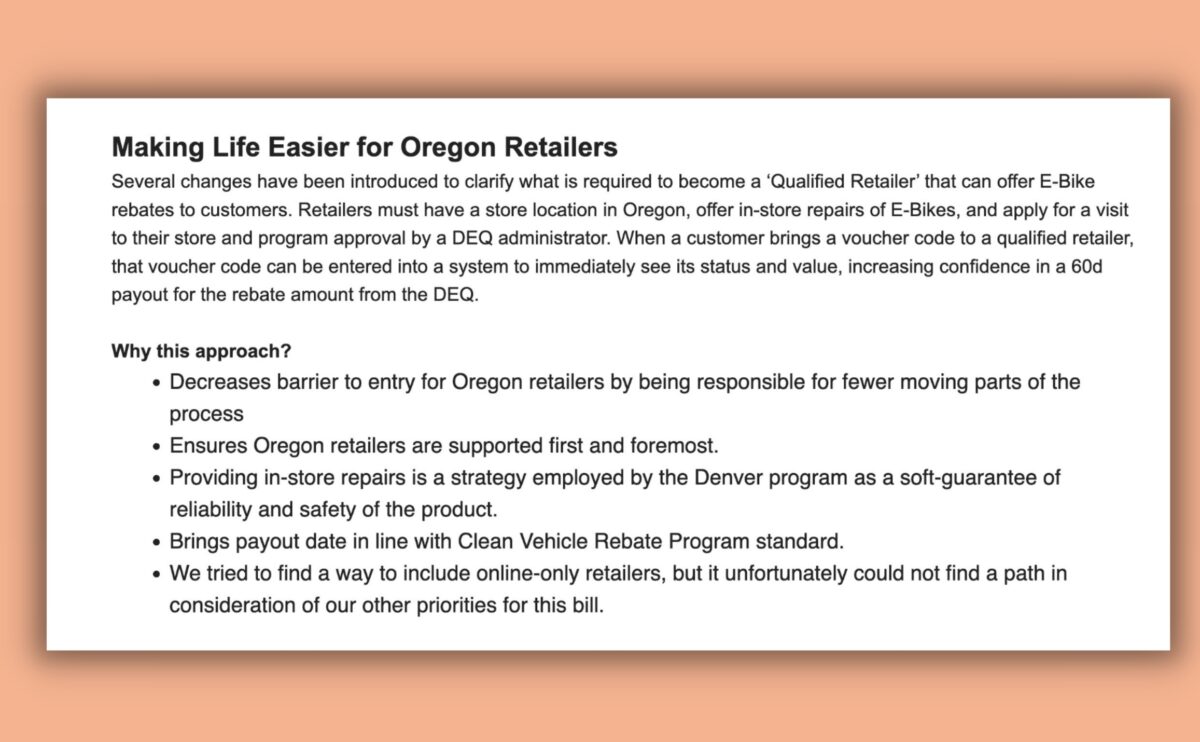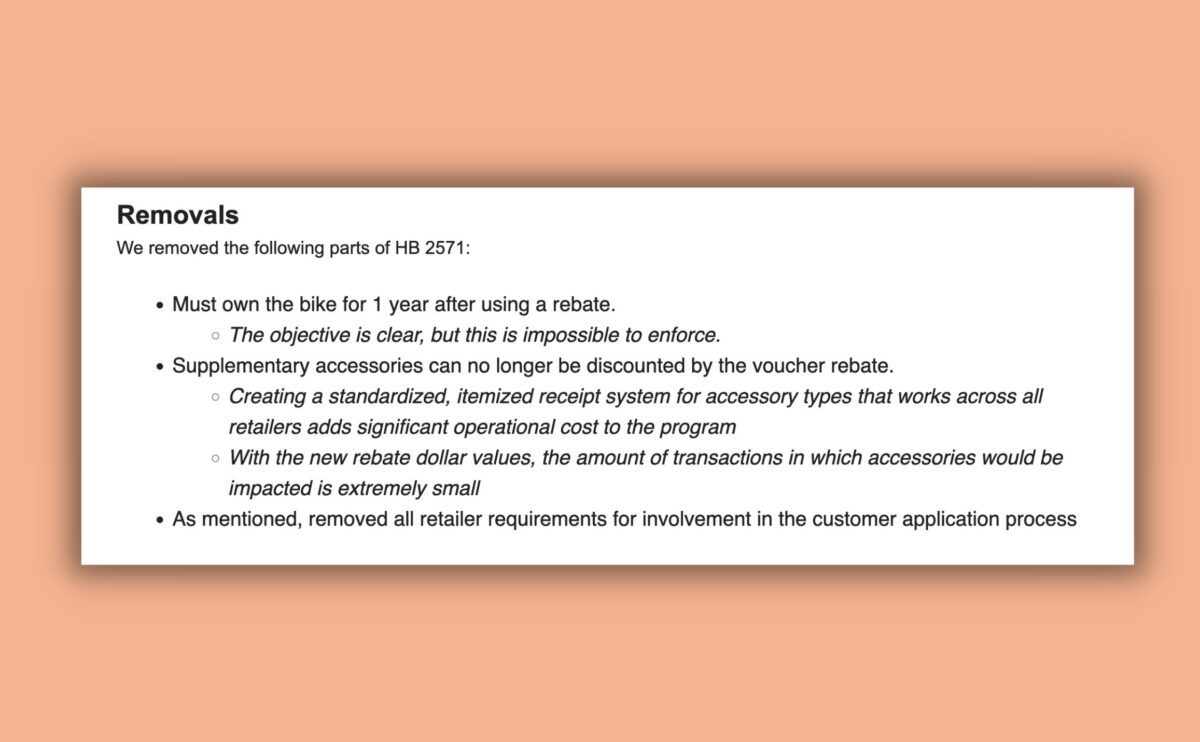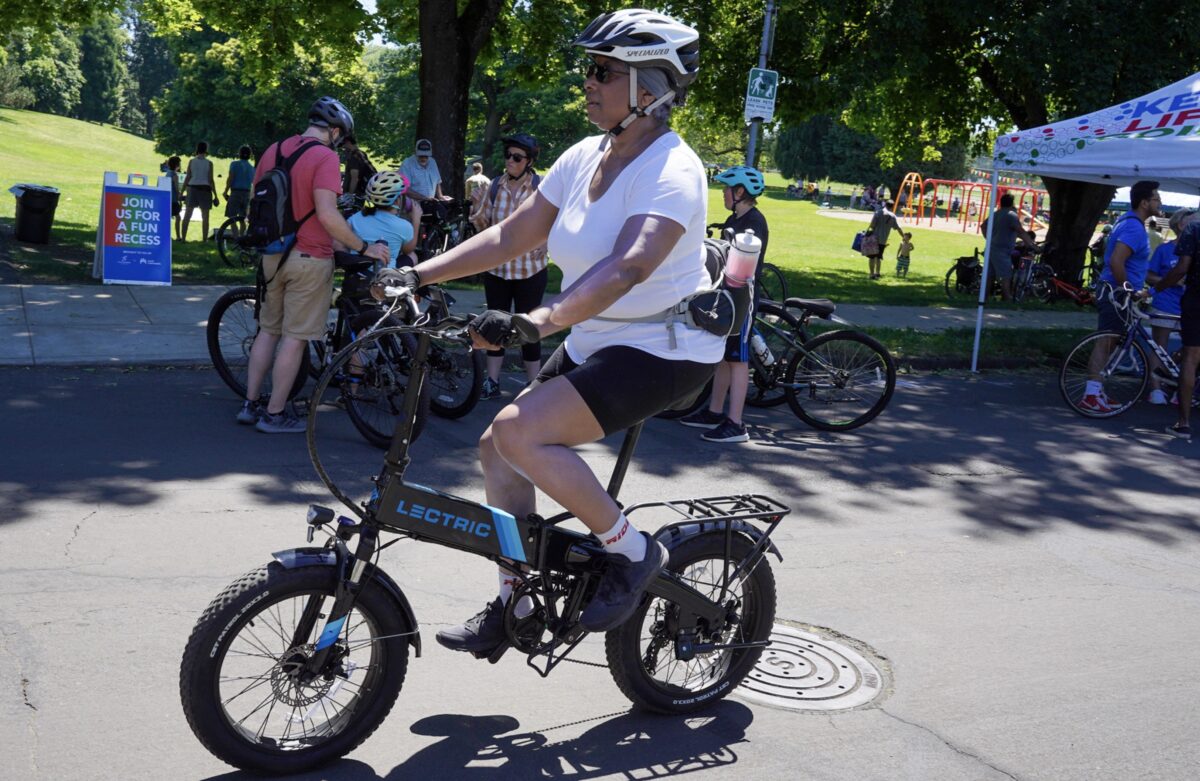In an effort to increase their chances of getting something passed this legislative session, sponsors of Oregon’s e-bike rebate bill have decided to give it an extreme makeover.
When House Bill 2571 was first released in November, it was hailed as an exciting step forward by e-bike advocates and bicycle retailers across Oregon. It was a relatively simple concept that would have given e-bike buyers up to a $1,200 rebate at the point of purchase for a standard bike or $1,700 for a cargo bike. The original bill was just two pages long and was widely praised and supported at its first public hearing last month.
But since that hearing, the bill’s chief sponsor, House Representative Dacia Grayber, along with a team of advocates and policy experts, have made significant changes. The new version of the bill is six pages long and has been almost entirely re-written. New features include a provision for people with lower incomes and a larger role for the Department of Environmental Quality (DEQ).




In describing the changes, Rep. Grayber’s office said their two main goals were to make the e-bike rebate an extension of Oregon’s existing Clean Vehicle Rebate Program and, where possible, model it directly after Denver’s highly successful program.
One major addition is a tiered rebate structure to offer more benefits to low-income Oregonians — something the original bill lacked. Instead of a $1,200 to $1,700 rebate to all residents, the new bill will offer $400 for general residents and $1,200 for people who make 80% of the area median income. The total dollar amount being asked for in the bill is the same — $6 million for the first two years — but $2 million of that would be reserved for the low-income rebate.
This new funding model will double the number of people who can participate in the program. The original bill would have funded a total of 5,000 rebates. The bill can now fund 10,000 rebates.
Another interesting change is how they’ve expanded the definition of the pot of money that would be used for the rebates: the Electric Bicycle Incentive Fund. The new language says the fund could accept donations.
Beyond funding changes, the mechanics of the program have changed for both residents and qualifying retailers. The amendment calls for interested residents to fill out an application for a rebate voucher with the DEQ. All customer information will be kept in a DEQ database. The original bill required bike shop employees to gather demographic data at the point-of-sale. The bill also calls for the DEQ to include a (optional) survey question on the application that would capture the buyer’s anticipated usage and riding mileage.
This switch to a more DEQ-centric program will mean a longer timeline to get your money back (not a huge surprise for anyone that understands how government works). The original bill required retailers to supply the rebate within 30 days; the new bill gives DEQ 60 days.
Speaking of retailers, if they want to participate they’ll now have to apply with DEQ to become a qualified retailer. The program would be open only to brick-and-mortar stores in Oregon and each shop must provide in-store repairs of e-bikes. Before granting an application, each store must be approved by a DEQ employee after an in-person visit and inventory review. Once in the system, a retailer would be given computer access to DEQ software that handles transactions and processes vouchers.
The other thing you will no longer find in the bill is a requirement to own the bike for at least one year (which sponsors realized was unenforceable).
While it’s likely some Oregonians will be disappointed with the changes, the new approach gives the bill a much stronger footing in terms of governance structure. It should also provide a good runway into the 2025 legislative session where it’s very likely lawmakers will pass a large transportation funding package. If the e-bike rebate program has been a success, it’s likely supporters could angle for another large funding injection in that future bill.
We’ll get a sense of what lawmakers think of the new bill at the work session (and possible vote) in the House Committee On Climate, Energy, and Environment on April 3rd.
Note: The amendments have not posted to the Oregon Legislative Information Site yet. I’ll link to them when they do.


